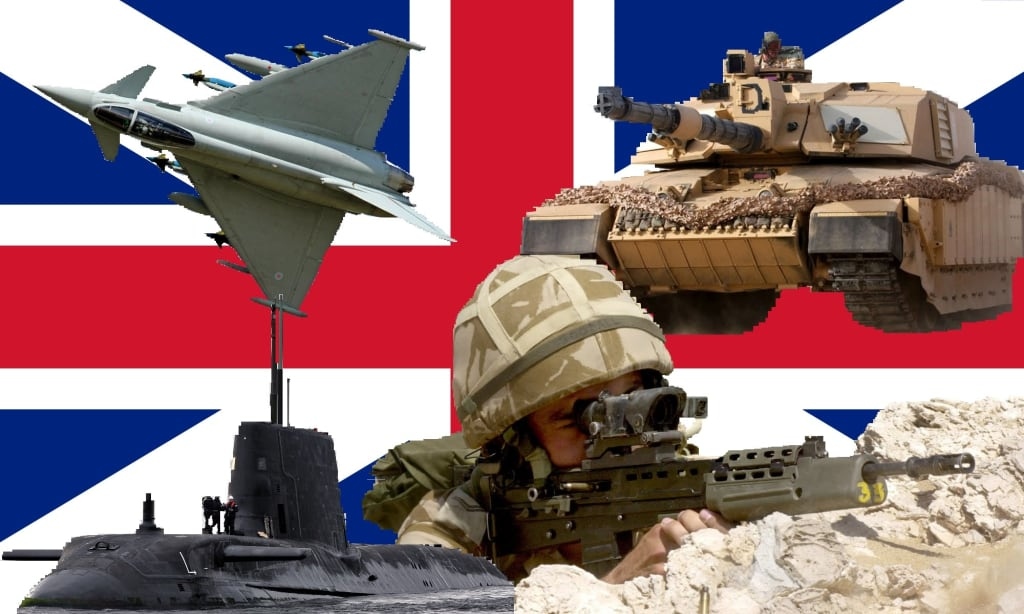Comments
- No comments found

The head of the British Army, General Sir Patrick Sanders, issued a stark warning.
Britain has to establish a modern "citizen army" capable of responding to potential land-based conflicts. Despite ruling out conscription, General Sanders stresses the need for preparedness in the face of evolving threats, particularly from Russia. Modernizing the army is a complex process that requires a holistic and strategic approach.
General Sanders emphasizes the inadequacy of relying solely on reserve forces and calls for the creation of a citizen army ready to be mobilized in the event of war. While rejecting conscription, he advocates for a system that lays the groundwork for a rapid expansion of the British Army, aiming for a force of 120,000 within the next three years.
Citing the threat posed by Russia, General Sanders points to the proactive measures taken by other European nations, such as Sweden and Finland, in preparing their populations for a "war footing." He underscores the strategic importance of aligning the UK's armed forces with the changing dynamics of global security.
General Sanders contends that the expansion of the army is just one facet of the necessary preparations. He calls for a simultaneous focus on modernizing and equipping the UK's armed forces, highlighting the importance of staying technologically advanced and agile in response to evolving threats.
The outgoing Chief of the General Staff draws attention to the conflict in Ukraine, emphasizing the resilience of citizen armies in times of war. He warns against repeating historical mistakes, referencing the failure to perceive escalations that led to World War One. General Sanders contends that the UK must learn from history and adapt its defense strategy accordingly.
General Sanders outlines the challenges faced by the British Army, including a significant reduction in size over the past 30 years. Despite facing recruitment challenges, he notes that applications to join the army are at the highest level in six years. The article delves into the consequences of military size reductions and the potential risks associated with inadequate preparedness. General Sanders is not alone in expressing concerns about military cuts. Former Chief of the General Staff, General Lord Dannatt, warns of a repeat of historical mistakes without increased investment in the armed forces. The article explores the perspectives of other military experts and policymakers on the path forward for ensuring national security.
As the global security landscape evolves, General Sir Patrick Sanders' call for a "citizen army" highlights the urgency for the UK to reevaluate its military preparedness. The article emphasizes the complex balance between national security imperatives and public sentiment, urging policymakers to learn from historical lessons and invest in modernizing and equipping the armed forces to meet emerging threats.
Britain should prioritize information-sharing agreements, joint intelligence operations, and collaborative efforts to monitor and counter emerging security challenges. Enhancing domestic intelligence capabilities is equally important for identifying and mitigating risks.
Investing in the modernization of the military is essential. This includes acquiring cutting-edge technologies, upgrading equipment, and maintaining a well-trained and agile armed forces. Regular training exercises are crucial to ensure that the military is prepared to respond effectively to various forms of aggression.
The UK should also focus on developing robust systems to protect critical national assets from cyber attacks. Establishing protocols for rapid response and recovery in the event of a cyber incident is crucial for minimizing the impact on national security.
Embracing technological advancements is crucial for maintaining a competitive edge. Investing in research and development, particularly in defense technologies, ensures that Britain has access to cutting-edge capabilities. This includes advancements in artificial intelligence, robotics, and autonomous systems.
Flexibility in policymaking is essential to adapt to evolving threats. Regularly reviewing and updating policies ensures that Britain's response mechanisms remain effective. This includes flexibility in diplomatic, military, economic, and cybersecurity policies to address emerging challenges.
Felix is the founder of Society of Speed, an automotive journal covering the unique lifestyle of supercar owners. Alongside automotive journalism, Felix recently graduated from university with a finance degree and enjoys helping students and other young founders grow their projects.
Leave your comments
Post comment as a guest